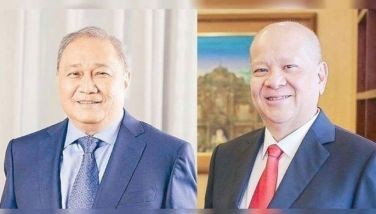Soft skills development in the digital era

I recently marked my 35th year of service in Meralco and as I ponder on this more than three decades of professional journey with the company, I am struck by the profound evolution that has both shaped and defined our communication landscape.
Despite the disruptive impact of new technologies across the communications industry, the timeless significance of core principles and skills persists, particularly in today’s swiftly evolving digital landscape. Within this foundation, soft skills emerge as indispensable pillars, serving as essential tools for navigating the intricacies of modern professional life.
Soft skills, as defined by Forbes, encompass a range of interpersonal abilities often referred to as “people skills” which enable individuals to engage effectively with others in a professional environment.
A recent study by the Philippine Institute for Development Studies (PIDS) titled “Toward Measuring Soft Skills for Youth Development: A Scoping Study,” sheds light on a pressing concern: the deficiency of soft skills among Filipino workers. It highlights a significant gap in crucial attributes like collaboration and adaptability, which are essential in addressing challenges posed by artificial intelligence and new, emerging technologies.
The study underscores that this competency gap can be traced back to outdated training programs that are not well-suited for the demands of the digital era. As it acknowledges the critical role of formal education, the PIDS study also emphasizes the need to better equip students for future workplaces, where management, collaboration and leadership skills hold increasing importance.
“Addressing this gap requires a concerted effort from educational institutions, policymakers and industry leaders to redefine skills development frameworks and prioritize the cultivation of these essential competencies,” the PIDS study states.
As an experienced communications professional, I find these findings concerning. Soft skills extend beyond the confines of the professional environment; they resonate across all aspects of life.
Likewise, while technical proficiency remains invaluable in this digital age, the ability to collaborate seamlessly, communicate effectively and adapt to changes swiftly is equally indispensable.
Today’s professionals are equipped with an array of tools at their disposal but relying solely on technical knowledge is inadequate. It is crucial to acknowledge that navigating evolving challenges requires innovative and fresh perspectives.
Investing in the education, training and collaboration of young Filipinos—both within educational institutions and the workforce—is key. It not only addresses the soft skills gap but also helps support human capital development, futureproofing the Filipino workforce and equipping them with the knowledge and skills necessary to tackle future challenges head-on.
This is not to diminish the importance of technical training; rather, I believe this is a call for awareness on the need for a more significant investment in soft skills development. Neglecting this aspect undermines not only individual productivity but also negatively impacts our nation’s competitiveness on the global stage.
Consider, for instance, the transformative potential of seamless collaboration across diverse demographics and professions. This synergy fosters innovation, a cornerstone of success in our interconnected world. Another soft skill- effective communication- on the other hand, cultivates deeper connections with audiences, including customers and stakeholders, elevating brand reputation. Additionally, proficient leadership and management skills accelerate team achievements, leading to tangible business efficiencies that positively impact the bottom line.
In the current digital era, achieving holistic success depends on seamlessly integrating technical expertise with essential soft skills. By prioritizing the development of both, and addressing deficiencies, the Filipino workforce can elevate themselves toward excellence and thrive in the competitive global marketplace.
Let us forge ahead in cultivating soft skills among young Filipino students and professionals, nurturing a culture of empowerment that propels them toward success in the digital age.
- Latest
- Trending

























